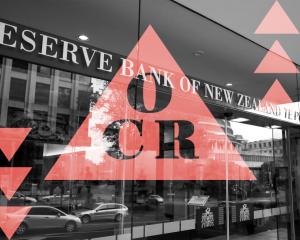
The major concern is the ongoing tit-for-tat battle between the United States and China.
On July 6, US President Donald Trump’s Administration officially instituted 25% duties on $US34 billion ($NZ50 billion) worth of Chinese goods. China, for its part, responded by implementing retaliatory tariffs on the US shortly after. The following week, the US released a list of Chinese goods with an annual trade value of about $US200 billion that may be subjected to 10% tariffs.
Trade wars can also cause currency wars.
The end of World War 1 sparked the first worldwide currency war, starting in Weimar Germany in 1921, followed by France in 1925. In the end, all the major economies scrambled to devalue their currencies — sterling, the franc and the US dollar — throughout the 1930s.
In 1930, US president Herbert Hoover signed into law the Smoot-Hawley Tariff Act, which intensified the currency war and deepened the Great Depression. The protectionist law raised tariffs on more than 20,000 imported products and triggered retaliation by many of the United States’ trading partners.
Trade wars stoke nationalism and hatred among people and finally trigger wars, as evidenced by the breakout of World War 2.
The Japanese invaded Manchuria in 1931, and the whole of China in 1937; the Germans invaded Poland in 1939, then the rest of Europe; and the Japanese attacked Pearl Harbour in 1941.
A quote often attributed to the 19th-century French economist, Frederic Bastiat, goes: "When goods do not cross frontiers, armies will".
The present US-China trade war is fuelling geopolitical tensions between the world’s two largest economies and chief political adversaries, as they become more confrontational over their discord on maritime issues in the South and East China seas and over Taiwan.
History often repeats itself if we do not learn from it. The two full-blown trade wars some 80 and 100 years ago helped to ignite the two world wars.
The trade war with the US could not have come at a worse time for China, which had just begun focusing "in earnest" on fixing problems in its economy, JP Morgan analysts said on Wednesday.
Many analysts had suggested the impact of the Washington-Beijing trade skirmish will be relatively muted on the Chinese economy, noting exports to the US do not hold a commanding presence in China’s economic portfolio. But that line of thinking does not take into account how tariffs will affect business sentiment, investment and growth in China, the JP Morgan analysts wrote in a note.
Those indirect effects could lead to large collateral damage, they said.
 Photo: Reuters
Five top trade wars
Photo: Reuters
Five top trade wars

1) Opium War: The first Opium War was fought between the Qing dynasty and the British Empire between 1839 and 1842 over the ban on trafficking of the substance by the British East India Company to China. This led to China losing Hong Kong to Britain. During the second Opium War between 1856 and 1860, Britain along with France forced China to open all of China to foreign merchants and exempt foreign import duties. Both wars weakened the Qing dynasty and led to the modernisation of China.
2) The Smoot-Hawley Tariff Act, 1930: To protect the falling stock market and domestic industry, US president Herbert Hoover signed the Smoot-Hawley Tariff Act introduced by Senators Reed Smoot and Willis C. Hawley. It was originally designed to protect the farm sector but Mr Hoover expanded the scope of the Act to include about 20,000 products from various sectors. While the US successfully reduced its import dependence over the next couple of years, the retaliatory measures from other countries led to a 61% dip in US exports by 1933. The trade war only accentuated the Great Depression. The Act was repealed with the enactment of the Reciprocal Trade Agreements Act of 1934. The US Congress gave authority to its president to negotiate bilateral trade deals without prior Congress approval.
3) Chicken Wars: In the early 1960s, France and Germany imposed high tariffs on American chickens as demand for European chickens fell. People were enjoying the cheaper American chickens. The US retaliated by imposing higher tariffs on commodities, including French brandy and Volkswagen buses. It even threatened to cut Nato troops to Europe. France and Germany did not buckle under pressure even though consumers from both sides of the Atlantic Ocean were the real losers.
4) The Pasta War: The Ronald Reagan administration raised tariffs on pasta from Europe in 1985 as complaints of discrimination against US citrus products fell on deaf ears. Europe retaliated in kind with higher tariffs on American lemons and walnuts. In August 1986, both sides signed an agreement ending the citrus dispute and in October 1987, the pasta dispute ended.
5) The Banana Wars: To restrict imports of bananas to its colonies in Africa and the Caribbean, Europe in 1993 imposed heavy tariffs on imported Latin American bananas. Since US companies owned most of the banana farms in Latin America, the US filed eight separate complaints with the World Trade Organisation. The EU agreed in 2009 to gradually reduce tariffs on bananas from Latin America. However, it was only in 2012 the EU and 10 Latin American countries signed an agreement to formally end all the eight WTO cases, ending the 20-year-long banana war.
Source: LiveMint












